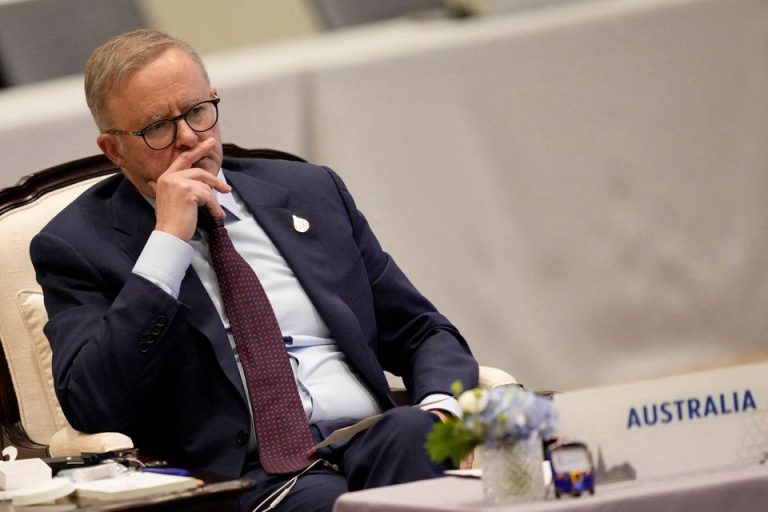
SYDNEY, (Reuters) – Australia on Monday committed about $300 million to improve life outcomes of its Aboriginal people, as the country marked 15 years since a national apology for forcibly removing Indigenous children from families under old assimilation policies.
The government announced A$424 million ($293 million) would go towards “Closing the Gap”, which includes providing safe and reliable water for remote Indigenous communities, building of new homes, making essential food affordable and accessible, and supporting families impacted by family violence. Australia’s roughly one million Indigenous citizens have inhabited the land for roughly 60,000 years but track well below national averages on most socio-economic measures and suffer disproportionately high rates of suicide, domestic violence and imprisonment.
As many as one in three Indigenous children were removed from their families between 1910 and the 1970s in a bid to assimilate them into white society, an action described by former prime minister Kevin Rudd as a “great stain” on the nation’s soul during a formal apology to the so-called ‘Stolen Generation’ in 2008. In November last year, the country was still failing to meet almost half its targets for improving the lives of Indigenous people, including the problems of adult incarceration and suicide.
Speaking in parliament, Prime Minister Anthony Albanese said the gap between life outcomes of the Indigenous and non-Indigenous people not only persist, but some are getting bigger.
“These are not gaps, they are chasms. It is clear that not enough support has been directed towards organisations to deliver for communities, Albanese said. “It will be a long time before we can say we have done enough, but we have to do this work together. Day after day, week after week,” he said.
Opposition leader Peter Dutton apologised for boycotting the national apology in 2008.
“I’ve apologised for that in the past and I repeat that apology again today,” Dutton told parliament in his speech.
“I failed to grasp at the time the symbolic significance to the Stolen Generation of the Apology.”
Albanese is seeking bipartisan support for a landmark referendum this year to recognise Aboriginal and Torres Strait Islander people in the constitution.
The referendum will establish a so-called Indigenous “Voice”, that can make representations to parliament on policies affecting them. There is no mention of the Indigenous community in Australia’s constitution at the moment.
“For all of us, I am optimistic about the success of the
referendum because I am optimistic that Australians will support this embrace of truth, justice, decency and respect,” Albanese told parliamentarians in the speech.
Australia’s First Nations people were not included in the census and recognised as part of the Australian population until 1967.






